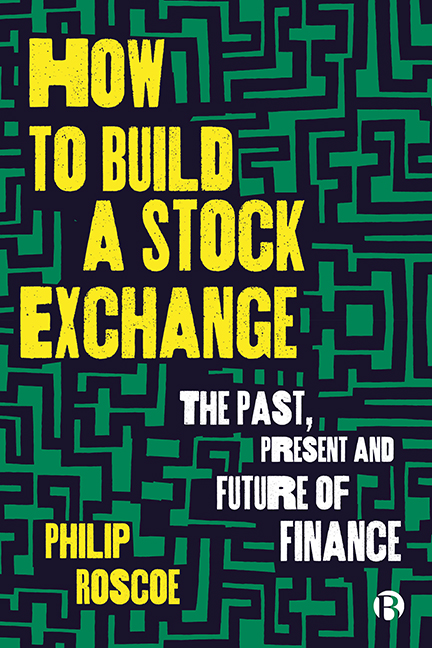14 - The Temples of Capitalism
Published online by Cambridge University Press: 18 January 2024
Summary
I wrote in the opening pages of this book that critiques of finance, from both friend and foe, often hinge on the claim that finance has lost its way. Finance is for something, they argue, and it is no longer doing it. One long-established tradition of thinking about stock markets sees them as engines of enterprise and the foundation of industry. These ideas are popular with policymakers, investors and the exchanges themselves; so much better to have a purpose than to be simply accidental, the product of happenstance and opportunism. We have seen the builders of markets draw on those narratives over and again. They are untrue, we now know, but the veracity of these ideas often matters less than how they shape the world. If people believe them, they will act accordingly, seeking a purer, better, more focused market.
We saw, in Chapter 11, how the sudden closure of the London Stock Exchange’s Unlisted Securities Market (USM) provoked howls of protest and intense pressure to offer an alternative, much of it couched in discourses of a newly entrepreneurial Britain. The country was, they claimed, bursting with entrepreneurial zeal, held in check only by lack of capital. Michael Lawrence, the incoming chief executive, clutched the lifeline that he had been thrown by campaigners touting the interests of UK PLC. This, he claimed, was exactly what the Exchange was for: growing Britain as a nation of entrepreneurs, not just in London but across the English regions, in Scotland and Northern Ireland, places devastated by the rapid de-industrialization of the late 1980s. He saw, too, an opportunity to fill the void left by the closure of regional stock exchange offices in the 1970s and 1980s. ‘These smaller companies,’ he would say, ‘these earlier-stage companies are not going to be walking about the City of London, you know, they’re going to be in the UK regions.’ Received wisdom held that local investors preferred local businesses: ‘One of the things I heard and learnt when I first came on with the role,’ says Theresa Wallis, who led the AIM team and became the first head of the market, ‘was … investors, when it comes to small companies they’d rather invest close to home where they can go and visit the companies and they look them in the eye and all that sort of thing.’
- Type
- Chapter
- Information
- How to Build a Stock ExchangeThe Past, Present and Future of Finance, pp. 156 - 166Publisher: Bristol University PressPrint publication year: 2023



